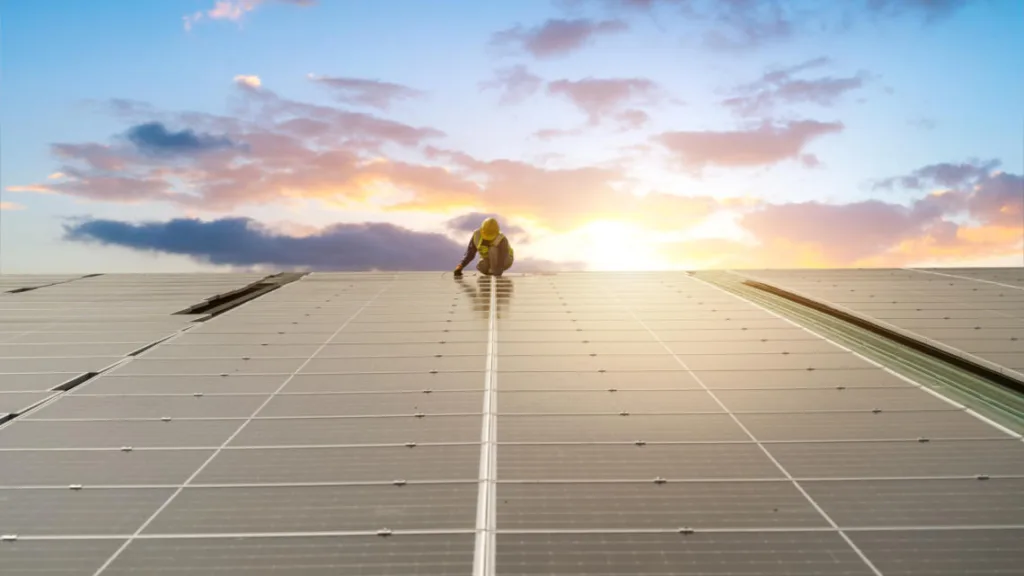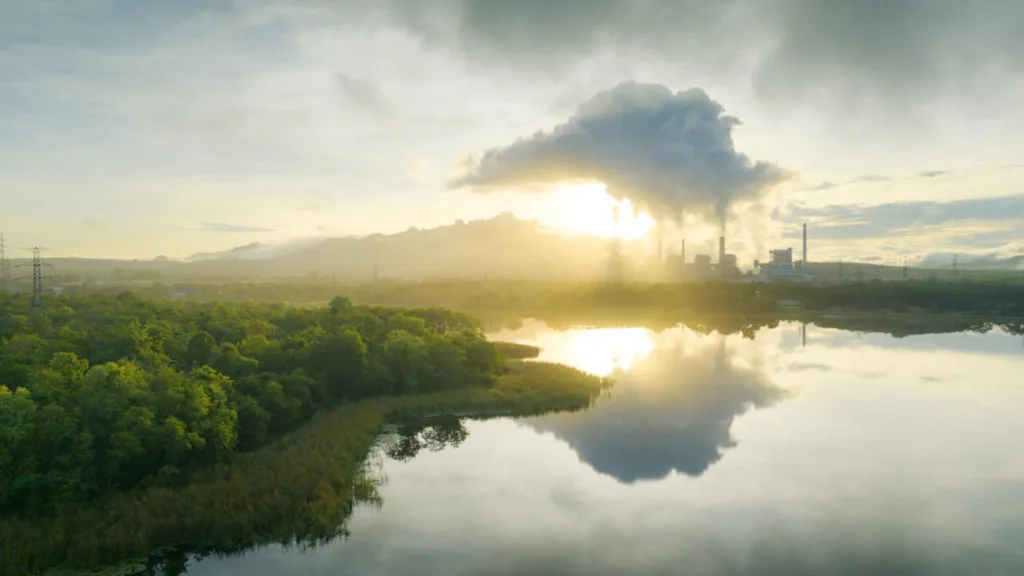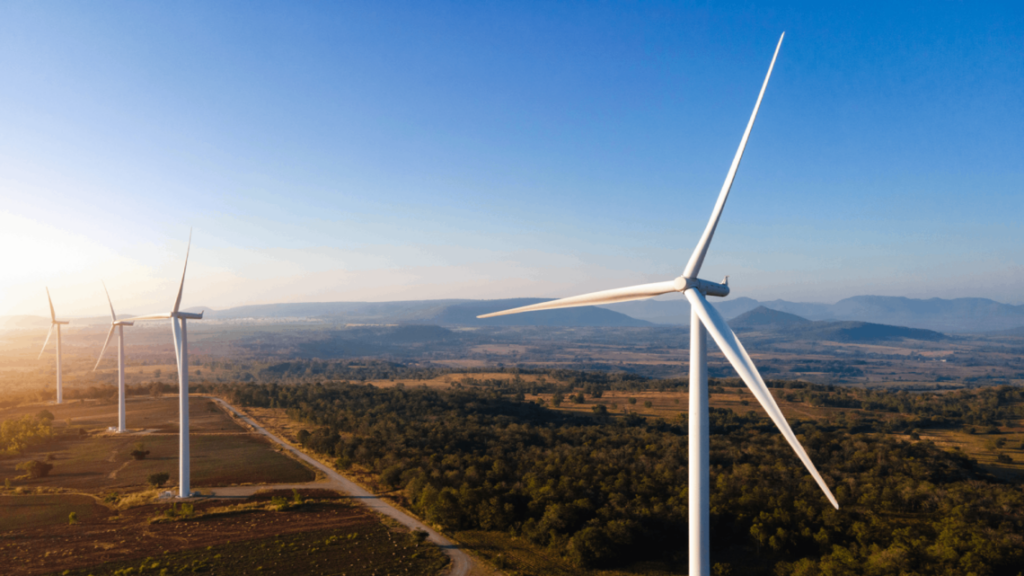Authors
Mariana Heinrich
We need to transform natural and human systems at an unprecedented scale and pace to avoid the detrimental impact of climate change to people and planet.
Responsible for around 40% of global CO2 emissions, the power sector is at the heart of this transformation.
In the last years, governments and businesses have focused on accelerating the uptake of renewable energy to reduce carbon emissions in the power sector. As a result, the share of renewables in global electricity generation increased from 21.7% in 2012 to around 26.5% percent in 2017, according to the Renewables 2018 Global Status Report.
Solar and wind technology costs have fallen substantially, making these technologies competitive with fossil fuel-based generation in several regions. In other words, renewables are now an undeniably profitable investment opportunity. As a result, many companies – on the supply and demand sides – are confirming their commitment to renewable energy as a key part of their sustainability strategies.
As part of this, energy users have been actively procuring electricity from renewable sources. Companies with ambitious climate goals have committed to run their operations entirely on renewable power. Most do so via RE100 – a collaborative, global initiative uniting 155 influential businesses committed to 100% renewable electricity.
However, despite recent progress and momentum, the IPCC’s special report “Global Warming of 1.5°C” makes it clear: there is still a tremendous challenge ahead and we must go further to decarbonize the power sector. By 2050, 70-85% of electricity generation needs to come from renewable sources.
A key lever to further increase renewable deployment are Corporate Renewable Power Purchase Agreements (PPAs). A PPA is a contract between the energy user and the power producer (developer or investor) to purchase electricity at pre-agreed prices for pre-agreed periods.
Corporate renewable PPAs are a “win-win” for energy users and power producers alike. For the energy user, PPAs reduce their environmental footprint, showcase leadership and often lower energy costs. For the power producer, they secure a revenue stream for the generated electricity and can ease access to project finance.
The global use of corporate renewable PPAs has outperformed market expectations: the average annual contracted volume of 0.3GW between 2008-2012 increased to 8.7GW annual volume in 2018 to-date, according to BNEF. This roughly equates to the electricity demand of Portugal.
With increasing demand from energy users, there is no slow-down in sight.
To fully unlock their growth potential, education about and simplification of PPAs is critical.
A better understanding of challenges and solutions will accelerate deployment of corporate renewable PPAs in mature markets and assist the successful development in new markets. The World Business Council for Sustainable Development’s (WBCSD) reports on Corporate Renewable Power Purchase Agreements: Scaling up globally, Power Purchase Agreements en Argentina, and Accelerating corporate procurement of renewable energy in India help address this issue by educating users and producers about regionally specific PPAs. Similarly, simplifying contract terms – where possible – reduces the time and hence costs both power producers and energy users spend to agree a PPA. Both are crucial to increasing the number of corporate renewable PPAs globally.
And PPAs are going global.
While the first growth phase took place in Mexico, the United Kingdom and the United States, the past two years have seen a growing uptake across Europe and Asia. Latin-American countries, such as Argentina, are similarly catching on fast, moving from zero signed contracts at the end of 2017 to an expected figure of around 15 contracts at the end of 2018.
This development indicates the widening activities of energy users: as they reduce their carbon footprint in countries with favorable market and regulatory conditions, they are able to expand their activity to new regions. This results in PPAs spreading to new markets across the globe.
Some companies with a global business footprint have by now contracted PPAs across different countries and are developing innovative approaches (see our report on Innovation in Power Purchase Agreement Structures). Some are matching their electricity demand with renewable supply on an hour-by-hour basis (instead of on an annual basis), while other companies with a high share of Scope 3 greenhouse gas emissions are actively supporting their supply chain to contract PPAs. And particularly companies with a smaller power consumption might find that forming a “buyers club” with like-minded energy users and jointly contracting electricity via PPAs is the right approach for their needs.
The continuous growth of PPAs has now also caught attention from policy makers who are introducing policies that allow bilateral contracts in their jurisdictions, e.g. Argentina and the EU. Going forward, enabling regulatory frameworks for corporate renewable sourcing will be an essential driver to renewable uptake.
In conclusion, to speed up power sector decarbonization within a short timeframe, corporate renewable sourcing is a key lever that can bring about the change we are looking for and PPAs are an important vehicle to achieve that goal.
To add to the story above – here’s what experts from companies are saying:
“Philips has set ambitious goals for 2020 with our sustainability program ‘Healthy People, sustainable Planet’. Carbon neutrality is an important goal of our operations. So, we strive to only use 100% renewable electricity. The agreement with Windpark Krammer gives us the opportunity to source wind energy for our operations, a novel approach. I am proud to have teamed up with fellow Industrial participants in this first-of-a- kind cooperation in Europe. It’s a perfect example of integrating circular economy principles.” Hans de Jong, CEO, Philips Benelux
“Contracts like PPAs, in which EDPR is a pioneer in the United States, will form part of the future energy landscape in Europe, where currently they are still at the early stages of development. We expect to see increasingly more agreements of this kind which benefit both energy producers and consumers. These contracts allow utilities to obtain visibility on cash flows and enable companies to guarantee clean energy with stable market prices. EDP Group has made long ago a firm commitment to this type of deal and we are one of the most active companies in this field, which is part of our efforts to bolster renewable energy.” António Mexia, CEO, EDP
“Thanks to PPAs signed with Acciona (100% Renewable Power), corporations can now lower their electricity bills and hedge their energy expenditure for the future while contributing to fight climate change.” Rafael Mateo, CEO, Acciona Energía
“Shell is looking at different opportunities to provide renewable energy to customers by expanding our power portfolio. For example, we have recently signed a long-term open access solar PPA for our own R&D technology center in India, to cover up to 80% of its baseload electricity consumption. This provides us with a tangible pathway to reduce carbon footprint of our own assets in country. Plus, it increases our learnings on creating customer value propositions in regulated markets, enabling Shell to provide more and cleaner energy solutions.” Marc van Gerven, VP Solar & Storage, Shell New Energies
WBCSD news articles and insights may be republished in accordance with the Creative Commons Attribution-NonCommercial-NoDerivatives 4.0 International Public License, and in accordance with our Privacy Policy. All Content must be featured with due credits.
Related
Content

Renewable electricity procurement: blazing a trail from innovation to leadership
27 April, 2023

Carbon removals: Why a portfolio approach is key to achieving climate goals
19 April, 2023

WBCSD updates the climate scenario analysis tool for companies to leverage in their climate-related financial disclosures
31 March, 2023
